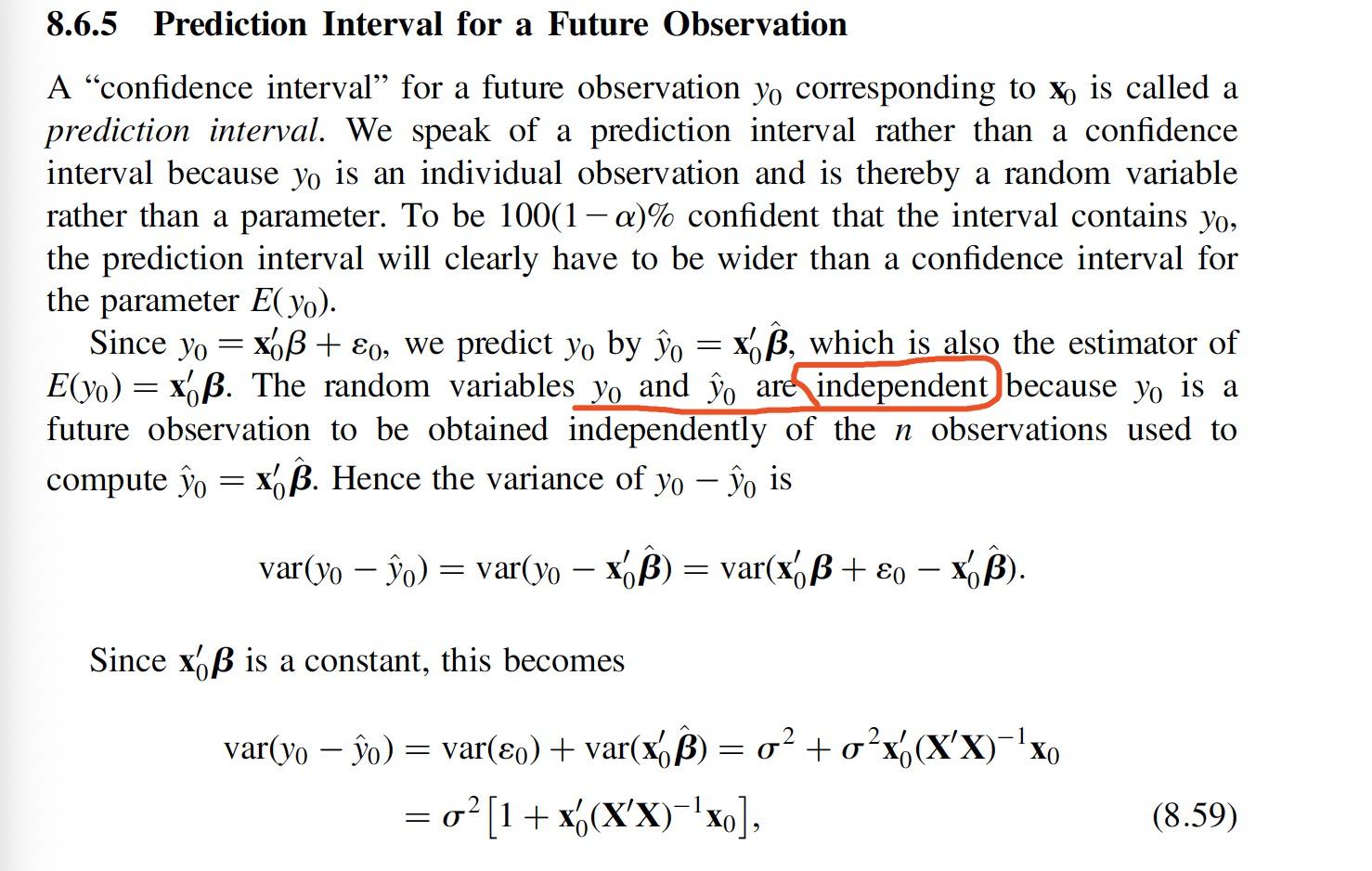I am not understanding why the predicted value and the true value are independent, I only know the error is independent of the predicted value. How do I proceed, thank you!

-
2$\begingroup$ Relevant thread here. $\endgroup$– dimitriyCommented Oct 29, 2019 at 18:43
-
$\begingroup$ To boil this question down to its essence: since the predicted value is based on one dataset and the actual value on a different, non-overlapping one, the question is simply "how do I know values in two different datasets are independent?" Jesper Hybel provides a nice account of the issues below. $\endgroup$– whuber ♦Commented Oct 29, 2019 at 18:49
1 Answer
The question is simply postulating a certain model of the Data Generating Proces where the next value $y_0$ is obtained independently of the $n$ observations used to fit the model $y_i = x_i\beta + \epsilon_i$.
If the future observation $y_0$ is truly is obtained by independent randomly drawing from some population then the model is ex hypothesi right. The question is then how do you make sure you draw independently? And is $y_0$ really generated that way? It is in this case impossible to know - beyond the claim that this is the case - since the example is fictitious.
But that said, you should only apply this procedure if you find yourself in a setting where the value $y_0$ you are trying to predict is independent randomly generated. There are many settings where this will not be the case and many of these could be related to timeseries which is unfortunately somewhat implied by the use of the word "future", but I do not think you should read too much into that here.
EDIT: Also $x_0$ is treated as given, non-random.
-
$\begingroup$ But I think that study_meow is saying ( albeit in a slightly different way): "How can be $\hat\beta$ and $\beta$ be independent since $\hat\beta$ is the estimate of $\beta$ !!!!!. To me, it's a great question and not intuitive. I think the best way to think about it is to NOT THINK of $x_{0}^{\prime} \beta$ as a random variable. Think of it as a constant which therefore is not a random variable. But that's just me. I'm not sure what the correct interpretation is. $\endgroup$– mloftonCommented Oct 29, 2019 at 5:31
-
$\begingroup$ Yes $x_0$ is treated as non-random. $\endgroup$ Commented Oct 29, 2019 at 9:29
-
$\begingroup$ Okay. So, if it's non-random, then there's no variance ( much less any covariance ) and the OP's issue is hopefully straightened out now. $\endgroup$– mloftonCommented Oct 30, 2019 at 15:50
